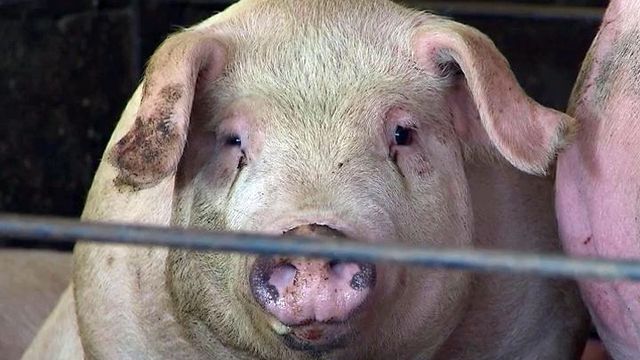NC farmers question Duke Energy's decision to go elsewhere for swine waste
For years, hog waste has been a major environmental concern in North Carolina. Now that farmers are starting to convert that waste into energy, state regulators are looking at why Duke Energy is going out of state to buy the bio-gas.
Posted — UpdatedA 2007 state law requires utilities to obtain a certain amount of the energy they provide from renewable sources, and tax credits are provided for the suppliers of solar, wind and converted animal waste energy. The estimated 8.7 million hogs in North Carolina produce plenty of waste, and farmers want to know why their pigs aren't being used more for that power.
Six farms in the state capture methane produced by hog waste lagoons to produce electricity, but Duke officials say that doesn't come close to meeting their renewable energy requirement. So, the utility wants to sign deals to get its methane from animal waste in Missouri and Oklahoma.
"We would prefer that Duke take advantage of North Carolina resources," said Angie Maier, spokeswoman for the North Carolina Pork Council. "We don't think the intent of the General Assembly in 2007 was for farmers in Missouri to reap the benefits or North Carolina's renewable energy law."
The dispute went before the North Carolina Utilities Commission last month. Duke's attorneys argued the company has every right to contract out of state.
"Duke's proposal to fire swine-waste-directed bio-gas from the Midwest is consistent with the commission's prior decisions. It is consistent with the plain language of the law," said Kendrick Fentress, Duke's associate general counsel.
Duke spokesman Randy Wheeless added that the infrastructure to convert hog waste into methane is better in the Midwest.
"It's more cost effective," Wheeless said, adding that the waste energy "is producing power here in North Carolina."
Maier acknowledged that North Carolina lags in waste-to-energy projects because the upfront cost can run into millions of dollars, which is prohibitive for farmers without the Midwest's deep-pocketed investors.
Duke officials said they expect the out-of-state deals will spur more waste conversion investment in North Carolina, but farmers worry that the energy credits will be gone by then.
"We fear that these out-of-state deals will not only limit opportunities for North Carolina farmers, but it could really dampen the progress that we've seen so far," Maier said.
The Utilities Commission is expected to rule on the waste-to-energy dispute in the coming weeks.
• Credits
Copyright 2024 by Capitol Broadcasting Company. All rights reserved. This material may not be published, broadcast, rewritten or redistributed.





